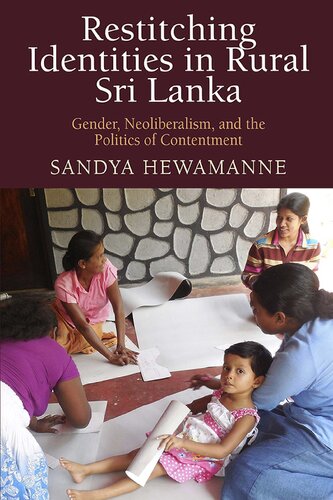

Most ebook files are in PDF format, so you can easily read them using various software such as Foxit Reader or directly on the Google Chrome browser.
Some ebook files are released by publishers in other formats such as .awz, .mobi, .epub, .fb2, etc. You may need to install specific software to read these formats on mobile/PC, such as Calibre.
Please read the tutorial at this link: https://ebookbell.com/faq
We offer FREE conversion to the popular formats you request; however, this may take some time. Therefore, right after payment, please email us, and we will try to provide the service as quickly as possible.
For some exceptional file formats or broken links (if any), please refrain from opening any disputes. Instead, email us first, and we will try to assist within a maximum of 6 hours.
EbookBell Team

4.3
48 reviewsSandya Hewamanne's Stitching Identities in a Free Trade Zone analyzed how female factory workers in Sri Lanka's free trade zones challenged conventional notions about marginalized women at the bottom of the global economy. In Restitching Identities in Rural Sri Lanka Hewamanne now follows many of these same women to explore the ways in which they negotiate their social and economic lives once back in their home villages. Drawing on ethnographic fieldwork conducted over fifteen years, the book explores how the former free-trade-zone workers manipulate varied forms of capital—social, cultural, and monetary— to become local entrepreneurs and community leaders, while simultaneously initiating gradual changes in rural social hierarchies and gender norms.
Free trade zones introduce Sri Lankan women to neoliberal ways of fashioning selves, Hewamanne contends. Her book illustrates how varied manifestations of neoliberal attitudes within local contexts result in new articulations of what it is to be an entrepreneur as well as a good woman. By focusing on how former workers decenter neoliberal market relations while using their entrepreneurial and civic activities to reimagine social life in ways more satisfying to them and their loved ones—what the author calls a politics of contentment—the book sheds light on new political possibilities in contexts where both reproduction of neoliberal economic relations and implementation of alternatives co-exist.